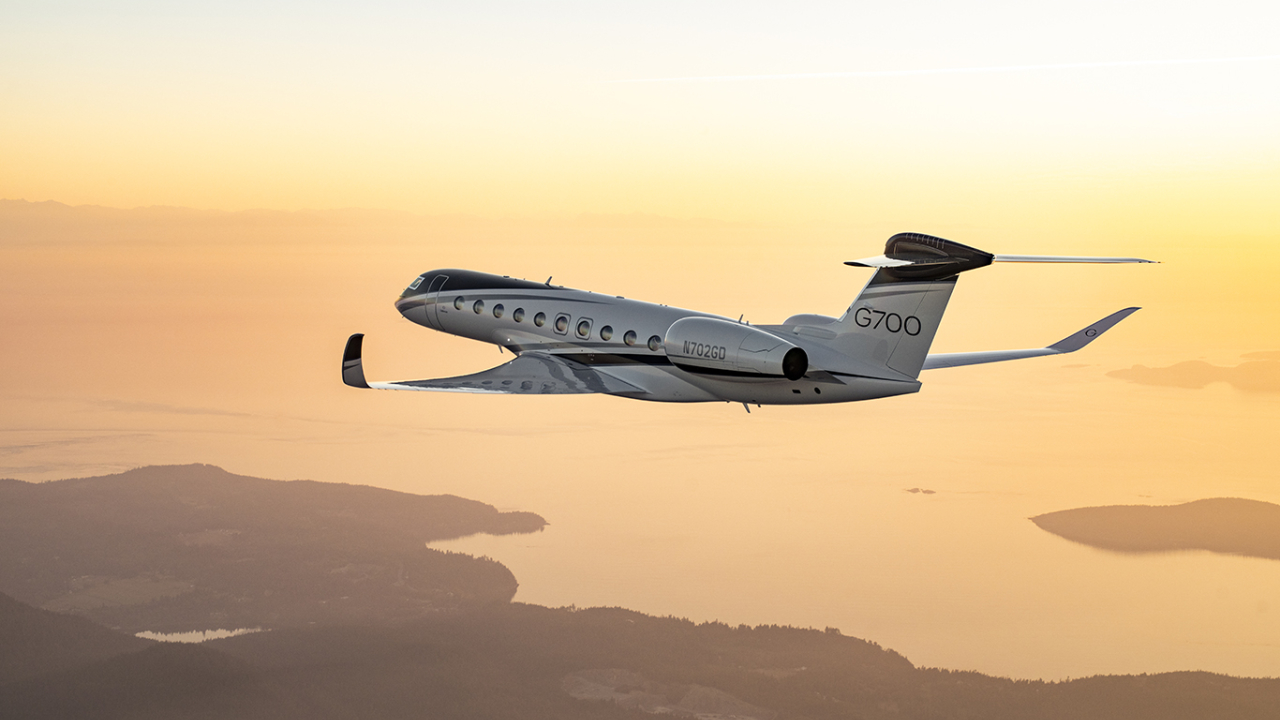Completing the picture
One Bahrain-operator has ambitious plans for expansion. LIZ MOSCROP takes a look at MENA Aerospace.

For all the hive of activity taking place in the Middle East aviation community today, one sector has been sadly lacking – aircraft owners wanting to install, repair or refurbish VIP interiors have had to fly their aircraft elsewhere.
MENA Aerospace aims to change that.
The company is expected to announce a deal with a regional airport authority, which has agreed to release land which MENA can “develop into a support platform for the region’s general aviation sector and develop a facility dedicated to aircraft maintenance and parking.” Ralph Eisenschmid, acting chief executive said: “If you look to our partnership with CAF Aviation Group that will give you an indication of our thinking.”
Last November Bahrain-based MENA announced an alliance with Montreal-based CAF, which includes joint management of a corporate aircraft and VIP airliner interiors refurbishment and installation workshop, including training staff. The facility will be capable of installing or retrofitting interiors for VIP airliners and business jets. The real money, however, will come from maintenance. Eisenschmid said: “Interiors refurbishment will never be our major business line; we will also offer a multi-disciplinary maintenance centre.”
The CAF deal also includes provision of aircraft on ground and mobile repair personnel services for OEMs; as well as provision of outsourced nose-to-tail specialised technical resources. According to Eisenschmid, finding staff will not be the issue that it is in some other Middle East countries. “It is significantly easier to operate in Bahrain than in the UAE from an HR and business point of view,” he said. The company already has its own home-grown workforce staffing its EASA 147-approved maintenance division.
When MENA does hire ‘expats’, it chooses carefully. Eisenschmid said: “There are two types of western expat in my experience. Those that are mercenary; in it purely for the money and those that want to be part of a new market and want to make a difference. They are the kind of people we hire that will enjoy the lifestyle here. Good customer-facing means having respect and knowledge for local cultures and sensitivities.”
Bahrain’s location is ideal, given its wealthy Saudi, Kuwaiti and Qatari neighbours. “The market here is small but the real attraction is our proximity to the Saudi market, along with access to Qatar, Iran, Iraq and Pakistan,” explained Eisenschmid. “Organisations attempting to get an AOC in Saudi demand aircraft maintenance and there are not enough facilities to support them. We run our maintenance and management divisions 100 per cent to Western standards.” Bahrain Airport does not charge for landing or parking, so operating costs are lower than they are in Dubai, for example.
Eisenschmid attributes MENA’s success to the fact that it operates several businesses, such as a line maintenance organisation and a parts support centre for airlines. The company received its Bahraini air operator’s certificate (AOC) in January 2009 and flies a Bombardier Challenger 300 as well as a Boeing 737 freighter. “We have survived through the recession thanks to the totality of services we offer,” he said.
MENA’s foray into cargo proved to be a huge success, as did adding a training division, which has helped supplement its business aircraft charter division during the downturn. He added: “It is difficult for companies to make a go of it with just one or two business lines, unless they diversify or can change their model quickly. Several operators ended up buying their business and accrued debt. Our CFO has 25 years experience in aviation travel in the UK and was able to develop innovative financial models. This has saved us tons of money.”
One such model is to offer owners an hourly rate for managing their aircraft. MENA does not charge a fixed fee, beyond the costs of keeping the plane airworthy. “If the aircraft is available to a third party, we don’t guarantee charter hours. No one can deliver on those guarantees. If we don’t sell time then we don’t get paid. This is a realistic and honest position where we are acting as a partner and the owner is not penalised.” Other sophisticated financial models prevail throughout the company, permitting it to expand and invest in new business lines.
The Middle East is still a fledgling market in terms of business aviation. The global industry is still only 25 years old and the region’s oldest operator, Bexair, has only been around for a decade. This means that several of the newer companies do not have experience in delivering service standards that regular users of private aviation have come to expect. Horror stories abound, like passengers left stranded at immigration because an operator had not arranged the correct paperwork.
MENA’s crews all do safety management courses and the company is IOSA audited, which comes at a cost. Eisenschmid said: “If an operator chooses to take the philosophy that it is more cost-effective not to train crews properly, than they will get what they pay for. Crews will delver service to extent of their ability.”
Since MENA’s philosophy is to develop those abilities, its new hangar facility is bound to be a valuable addition to the Arabian aviation landscape.
Stay up to date
Subscribe to the free Times Aerospace newsletter and receive the latest content every week. We'll never share your email address.

